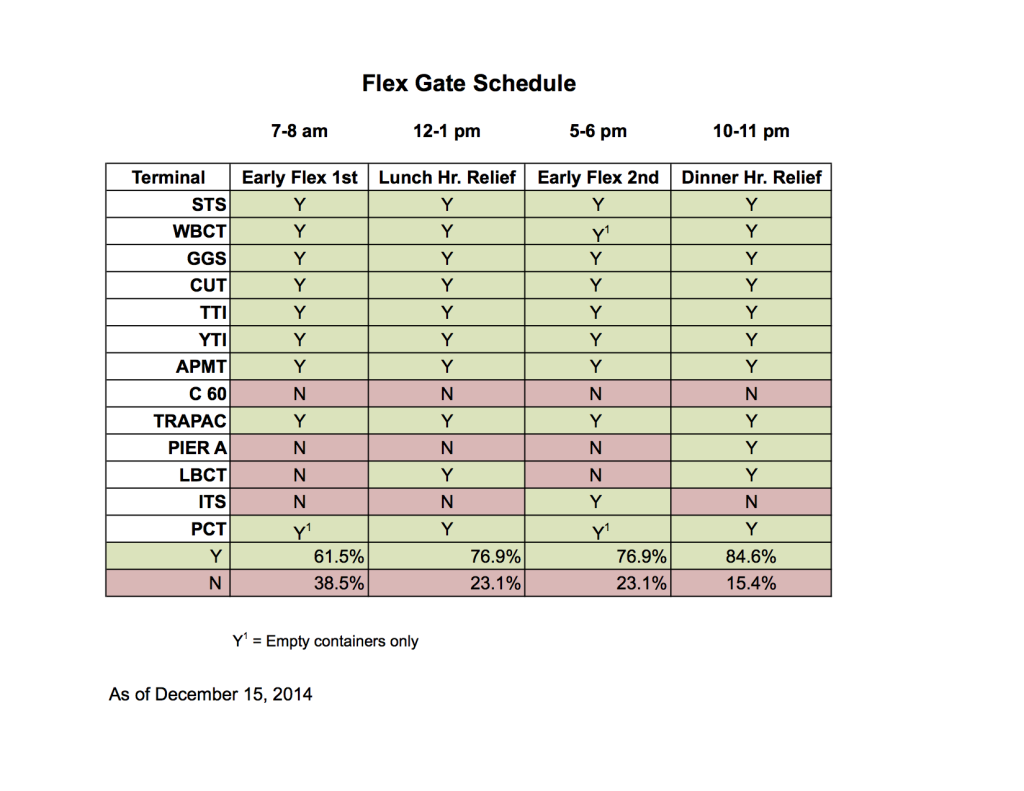LONG BEACH, Calif., Aug. 1, 2016 – The West Coast MTO Agreement (WCMTOA) has extended the implementation date of a new tariff rule for chassis services by one month until September 1. The rule applies to chassis owned by chassis leasing companies that receive services from WCMTOA’s marine terminal members at the Ports of Los Angeles and Long Beach.
The chassis system in the United States has been in flux for several years as shipping lines have moved away from providing the chassis (the truck trailer onto which containers are mounted) as part of their services. Since 2014, users in Los Angeles-Long Beach have arranged chassis directly with the leasing companies.
However, the terminals haven’t been compensated by the leasing companies for basic services provided such as storage space, stacking and unstacking the chassis, and electronic data interchange (which tells the chassis lessors who is using their chassis). Since the chassis leasing companies formed a “pool of pools” in early 2015, the terminals have been working with the leasing companies to address the compensation and services issues.
The new Rule 15 of WCMTOA’s Marine Terminal Schedule No. 1 describes the “On-Terminal Chassis Services” provided and establishes the “Chassis Services Fee.” The rule provides for a $5 fee each time a chassis enters or leaves the terminal, to cover the cost of services. The fee will be collected by PierPass on chassis with loaded or empty containers mounted, but not on bare chassis. MTO Schedule No. 1 is available at http://goo.gl/QihQ1u.
No fees will be charged for chassis that are owned directly by cargo owners or trucking companies, as these owners don’t require the services provided to leasing companies. Neither cargo owners or trucking companies need register their chassis under Rule 15.
Rule 15 was originally scheduled to take effect today, August 1. On Friday, PierPass informed the FMC that it was extending the start date to September 1, giving the leasing companies additional time to implement the change without impacting cargo flow in the ports.
The West Coast MTO Agreement is filed with the Federal Maritime Commission, and comprises the 13 marine terminal operators serving the Los Angeles and Long Beach ports.
###

